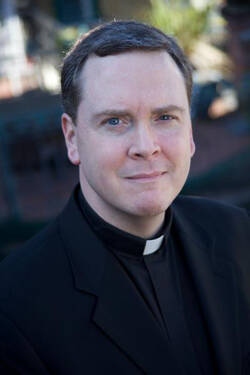Like a lot of folks in the Catholic media, I spent the days following the release of “Laudato Si’” talking to the secular press. The most frequently asked question, both on-camera and off, was some version of “What is Pope Francis really doing?” Now this is a perfectly reasonable question, especially during a time when people are generally distrustful of public figures and their motivations.
Yet in the case of Pope Francis, the question isn’t really necessary, mainly because the pope tends to tell us exactly why he is doing something. When he moved out of the Apostolic Palace, for example, there was a lot of speculation about his motives. But he told us exactly why he made the move: He found the palace too isolated. But even when the pope doesn’t tell us explicitly why he is doing something, we can usually discern his motives through the Rosetta Stone of his Ignatian spirituality. The Spiritual Exercises of St. Ignatius are the madness in the pope’s method, or the method in his madness, depending on one’s point of view. So in order to understand “Laudato Si’,” it is important to understand something about Ignatian spirituality. What follows is the best short description that I know of. The author is the eminent spiritual master Howard Gray, S.J.
Following the example of St. Ignatius, Jesuit life centers on the imitation of Jesus—focusing on those priorities which constitute Christ’s mind, heart, values, priorities and loves. What are those values, priorities and loves? Ignatius would encourage us to consider what Jesus said and did. At the foundation of Jesus’ life was prayer, a continuous search for how best to live as an authentic human being before a loving God. Jesus preached forgiveness of sins, healed the sick and possessed, and gave hope to the poor, to those socially and economically outcast. Jesus spoke of joy, peace, justice and love; he summoned men and women from all classes of society to continue to follow his way to God and his commitment to helping people become whole and holy. Being a companion with Jesus on his mission gave Ignatius of Loyola’s life a sense of purpose and meaning.
It is just such companionship that lies at the heart of Ignatian spirituality. The Society of Jesus attempts to incorporate these same gospel values into all its works. Jesuits stress the need to take time to reflect and to pray, in order to find out how God wants us to serve in all our ministries. This active commitment to seeking God’s leadership is called discernment. It is at the heart of St. Ignatius’ Spiritual Exercises.
The overriding characteristic we see in Jesus is loving obedience, an open-hearted desire to find and to pursue how God wants other men and women to be forgiven, to be free, to utilize all their talents and opportunities in ways which build up this world as a place where faith, justice, peace and love can flourish. This kind of spirituality is incarnational. It views the world as a place where Christ walked, talked and embraced people. It views the world, therefore, as a place of grace, a place of being able to give life to others.
At the same time, Ignatian spirituality is realistic. The world Christ faced was also a world of cruelty, injustice and the abuse of power and authority. Consequently, Jesuit spirituality affirms our human potential but also is dedicated to the ongoing, day-in-day-out struggle between good and evil. No one apostolic work exhausts how good can be done; therefore, Jesuits do all kinds of work. The Jesuit norm is: to find where God will best be served and where people will best be helped.








